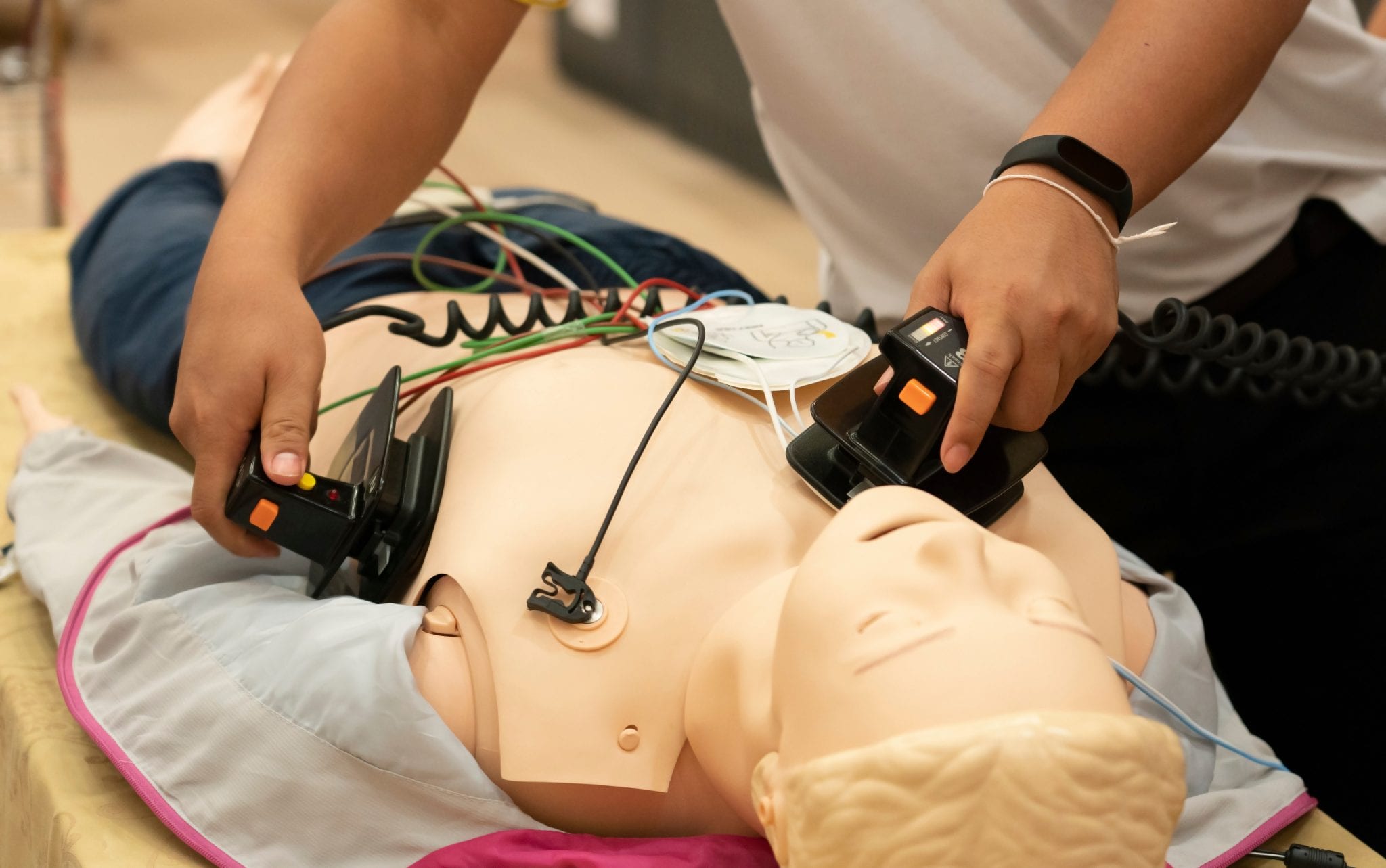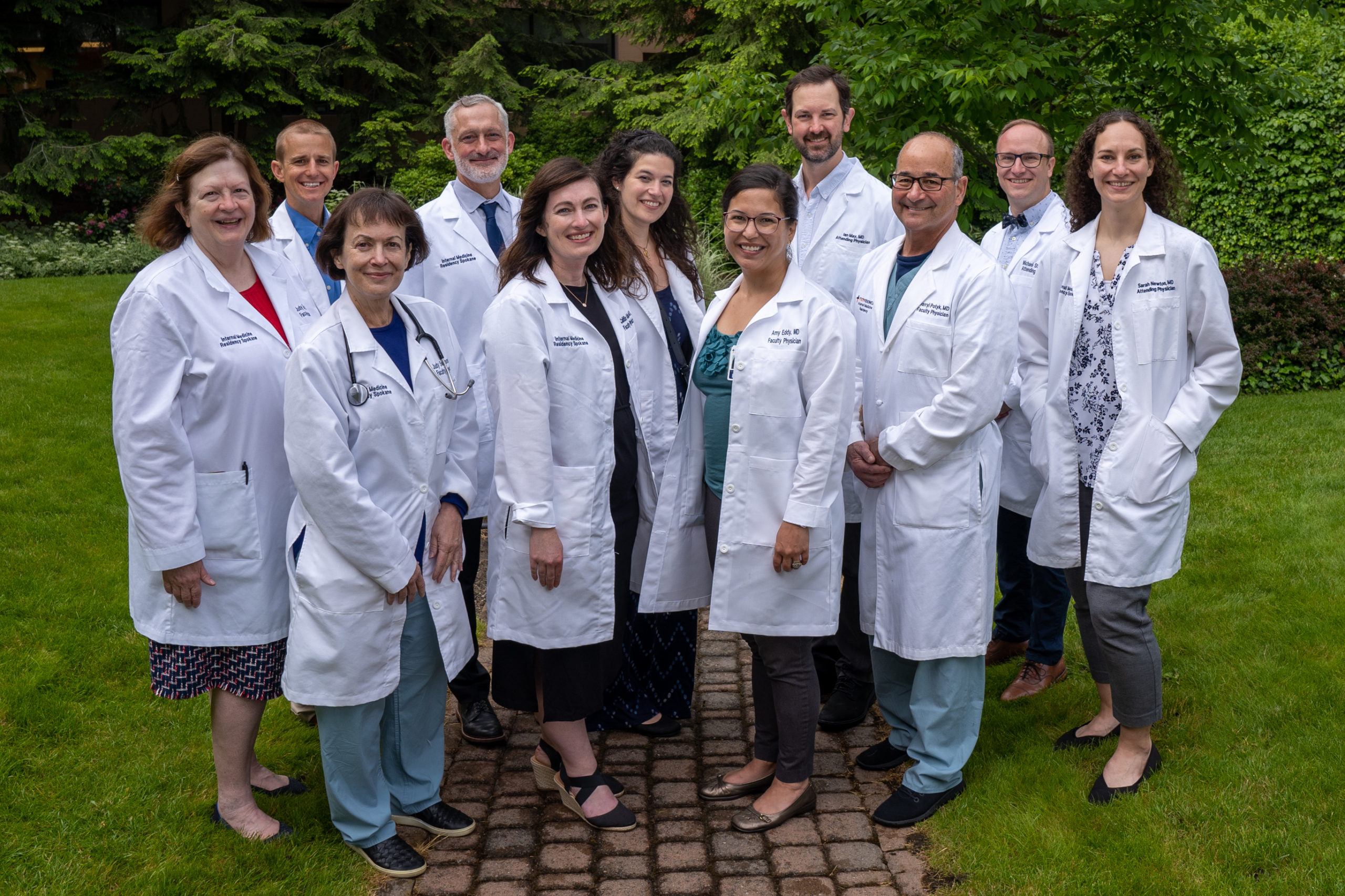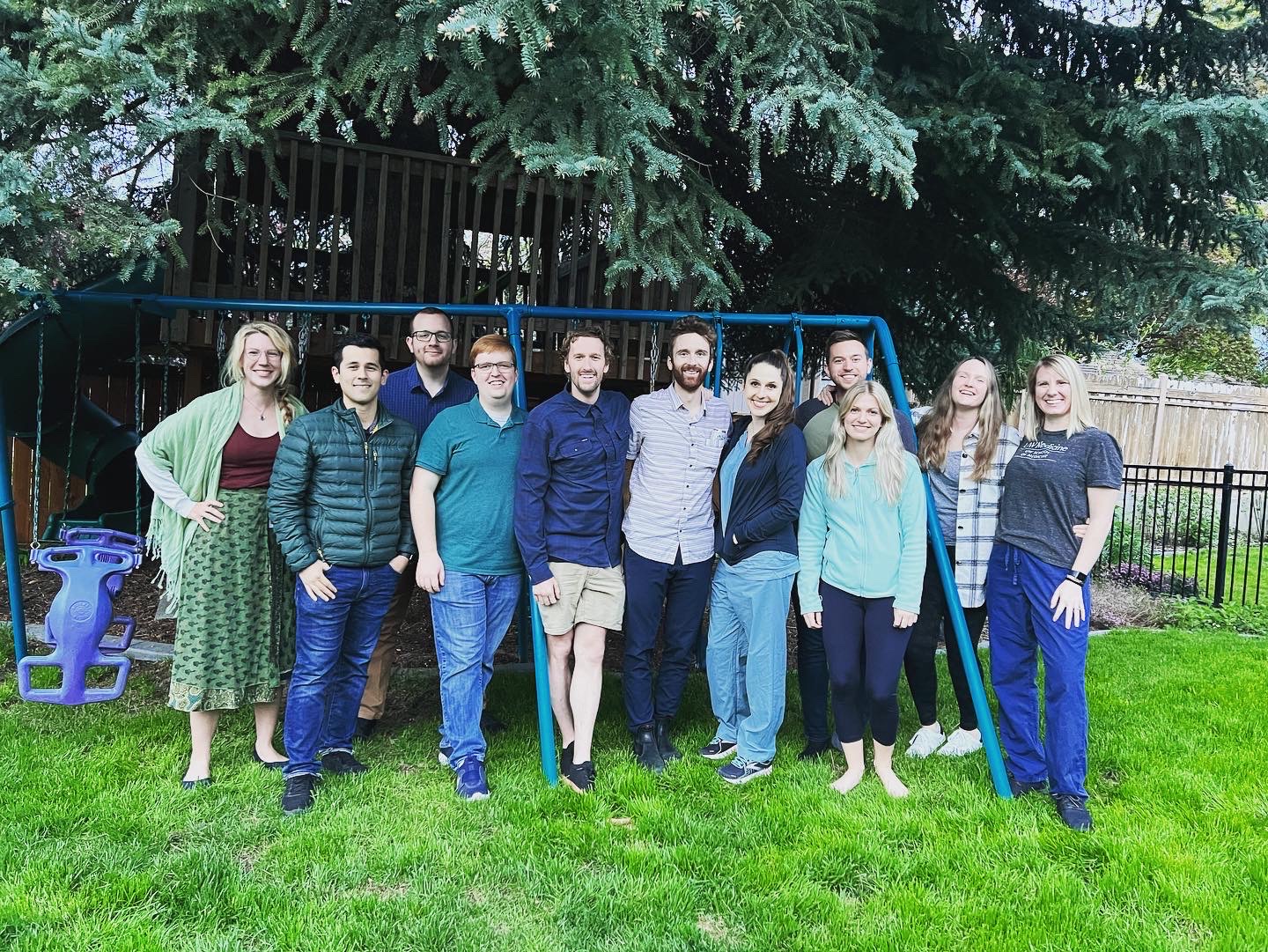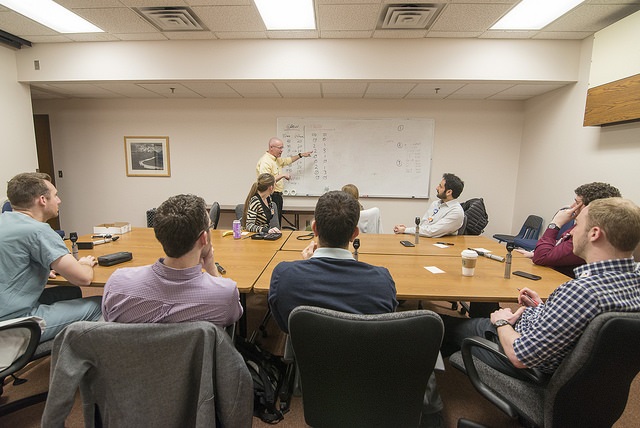Internal Medicine – Teaching
IMRS Faculty
IMRS is fortunate to have a core faculty dedicated solely to your educational experiences. Each is a lifelong learner with a passion for General Internal Medicine, with varied interests that make them well rounded; for example, you can learn all about becoming a clinic superstar from Dr. Allen, HIV care from Dr. Lundgren, and POCUS from Dr. Zhang. They are creative and innovative in their approach to medicine and are interested in each learner.
Mentors
The faculty provide mentorship/advice for a cadre of residents of varying years. They share lunch together several times/year, meet to discuss presentations, assist with career plans and serve as a resource.
Volunteer Attendings

Faculty are approachable since day 1 of residency. They allow us to grow professionally and encourage us to explore our own passions in medicine. They tailor their teaching to our interests

Hospital Collaboration
In the hospital (PSHMC), we join forces with pharmacy, transitional year, family medicine and psychiatry residents. We actively participate in code team training and Hospitalist grand rounds, to name just a few of our interdisciplinary projects. Residents have a seat at the table regarding hospital policies and workflows through participation in hospital committees.
Clinic Collaboration
The clinic is a rich environment for collaboration. Three residency programs co-habitate there and we experience support from pharmacy, social work, behavioral health, legal support for health-harm needs, exercise, nutrition and diabetes educators, all who provide teaching while they provide care for patients.
Residency Programs In Spokane
IMRS residents work with Family Medicine, Psychiatry, Physiatry and Transitional year residents on a variety of teams in the hospital. They interact frequently in our shared precepting space in the clinic. In addition, they interact socially with the other residency groups. You can always find someone who shares your interests!
Resident Involvement In Governance
We pride ourselves on responsiveness to resident input. The residents, faculty and admin staff meet monthly to enhance communication but also to problem solve any issues. The residents meet without faculty every month to discuss any concerns and to devise improvements. The topics discussed are brought to the Program Director who can institute new policy/change or bring these issues to the joint meeting described above. IMRS also has three extended resident/faculty meetings throughout the year that allow for more in depth discussion and solution generation.
Examples of resident participation that have resulted in change:
- Development of night float system (replacing Q4 call system)
- Implementation of Wellness Half Days
- Review of transitions of care curriculum
- Assignment of same-day Continuity Clinic to allow for improved patient continuity.
- Institution of house staff admitting-only team
Residents are actively involved in the Program Evaluation Committee, the Graduate Medical Education Committee, and many hospital committees, playing important roles, having a voice in decisions that affect their education and workflow.
Purple Team
- The purple inpatient team is a novel approach to assisting the senior resident develop skills to manage a team as well as learn/practice educational techniques. On this service, a single learner at each level (medical student, R1, R2 and an Attending physician) hone triage skills and perform admissions, with a dedicated educational curriculum.
ACLS
Residents are the hospital code team and are kept up-to-date in ACLS training. The program provides supplemental training (advanced airway management, pharmacology and cardiac rhythm lectures, interdisciplinary code team training) to truly prepare our residents to feel confident running codes.
ACLS-EP
Second year residents take an ACLS-EP course given by the IMRS faculty.
- Provides recertification for ACLS (IMRS pays for the course and cards)
- Allows exploration of in-depth, but less common ACLS scenarios
- Hypothermia
- Toxins, including poisoning
- Severe asthma management
- Lightning strikes
- Advanced electrolyte abnormalities
- Advanced airway procedures(using pig tracheas for cricothyroidotomies)
Transition To Senior Resident
All of the R1s attend an evening (complete with food) with the Program Director and a senior resident. R1s learn the duties of a senior resident including how to present to attendings at night, guidelines for calls, covering clinic patient calls, etc. In addition, they identify traits they wish to emulate as a senior resident and those they will avoid. Leadership of a team is discussed and they troubleshoot potential problems inherent in a team. This work is continued in the Senior Resident workshop series.
“IMRS had the best culture and “resident first” environment of all the programs with which I interviewed.”
“As a 4th year medical student on rotation in Spokane, I specifically recall a specialist who allowed me to follow an interesting case, even though I was not on rotation, because they were genuinely interested in my learning.”

Senior Resident Workshop Series
Annual workshop organized by faculty and fellows, geared specifically to give tools for success for senior residents.
Topics include:
- Working with faculty
- Discharge planning and hand offs
- Communication styles and giving feedback
- Leading a team
- Diagnosing your learners
- Teaching strategies and noon conference presentations

Humanities
IMRS provides a vital Medical Humanities curriculum, built on evidence of clinically-relevant empathy and adult learning of “theory of mind.” Noon conferences use narrative literature to examine our own stances and assumptions, and navigate difficult ethical and clinical situations. Social science elements build cultural humility and required care competencies. The history of medical thought illuminates physicians’ moral and functional role in society. Physical examination skills are taught using in part art-based habits of observation and interpretation. Centrally, IMRS emphasizes Medicine itself as an Art, a set of actions to be practiced and performed, rather than just a body of facts to be known.
IMRS faculty maintain an active education-research program on the impact of humanities work on clinical performance and human empathy. We encourage our residents to participate in scholarly activity, research, publications and presentations in this arena, along with their other clinical interest topics.
Spokane 10
Our residents and faculty consider these 10 diagnoses to be the cornerstone to internal medicine. We encourage every R1 to master this list – everything from epidemiology, pathophysiology, diagnosis and treatment.
- Diabetes/DKA
- COPD/asthma
- Sepsis
- Afib
- Cirrhosis
- ACS (includes STEMI, NSTEMI)
- Stroke
- GI Bleed
- AKI/CKD
- PE/DVT
